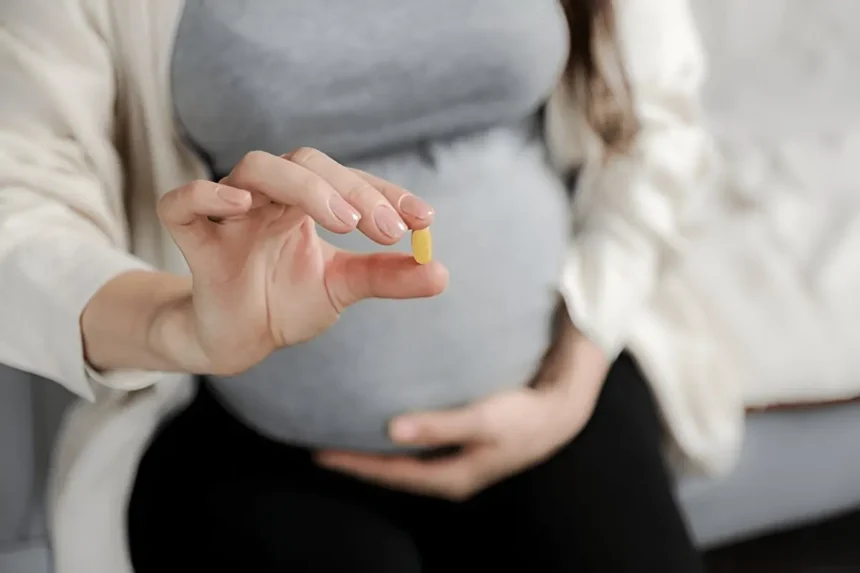Why Vitamin D Matters During Pregnancy
When I first learned I was expecting, I was swept up in a whirlwind of emotions excitement, curiosity, and a strong desire to do everything right for my baby. Like many soon-to-be moms, I started researching prenatal care. Amid the sea of information, one thing kept popping up: Vitamin D.
Before pregnancy, I didn’t give Vitamin D much thought. But as I learned more about Pregnancy and Vitamin D, I quickly discovered its crucial role during these transformative months. Beyond supporting bone health, Vitamin D is tied to immune function, emotional wellbeing, and lowering the risk of pregnancy complications. What started as a quick read turned into an eye-opening experience that I hope can help others too.
Understanding Vitamin D: More Than Just Sunshine
Pregnancy and Vitamin D is known as the “sunshine vitamin” because our bodies synthesize it when exposed to sunlight. It’s essential for absorbing calcium and phosphorus key nutrients for bone development. But during pregnancy, its job list grows longer.
This nutrient helps support your baby’s developing bones, teeth, and immune system. It also keeps your own body strong and balanced, affecting your energy, mood, and even immune response. Studies show that insufficient Vitamin during pregnancy can increase the chances of issues like preeclampsia, preterm birth, and gestational diabetes.
How Much Vitamin D Do You Really Need?
Finding the right dosage was a bit confusing for me at first, since recommendations vary slightly. Here’s what’s generally advised:
- The baseline recommendation is 600 IU (International Units) per day for pregnant women.
- Those with risk factors like limited sun exposure, darker skin, or full body coverage might need up to 1,000–2,000 IU per day.
My OB tested my levels early in pregnancy. Since they were slightly low, she advised adding 1,000 IU to my daily prenatal.
The Benefits I Noticed and You Might Too
As I dove deeper, the importance of this nutrient really became clear. Here are some top benefits:
- Bone and Tooth Development for Baby
- Stronger Immune Function
- Lowered Risk of Pregnancy Complications
- Improved Energy and Mood
Personally, I felt more energetic and less moody after adjusting my dosage. Whether it was placebo or real, it made a difference.
How I Got Enough Vitamin D
These were the sources I relied on:
- Sunlight: I tried to get at least 20 minutes of mid-morning sunlight daily.
- Diet: I added more eggs, salmon, mushrooms, and fortified dairy to my meals.
- Supplements: I chose a prenatal vitamin that contained Vitamin D and added a separate D3 supplement based on my doctor’s advice.
What Happens When You’re Deficient?
Low Vitamin D levels can sneak up silently. Here are some signs to look out for:
- Persistent fatigue
- Frequent colds or infections
- Muscle weakness or aches
- Low mood or irritability
Deficiency could increase the chances of low birth weight, skeletal problems, or even delayed growth in babies.
But Don’t Overdo It
Taking too much Vitamin D can be harmful too. High doses can cause elevated calcium levels in the blood, leading to nausea, kidney strain, and confusion. Always check with your healthcare provider before adding any supplements.
Vitamin D Testing: Worth It?
In my case, yes. A quick blood test revealed my level was slightly under optimal, guiding my supplement strategy. It’s especially worth considering if you have limited sun exposure, are vegan, or have darker skin.
Can Food Alone Meet Your Needs?
Realistically, no. Even with a balanced diet, it’s tough to hit the recommended intake through food alone. I needed supplements to get my numbers up. The difference in my mood and energy was noticeable within a few weeks.
Pro Tips for Better Absorption
- Take Vitamin D with a fat-containing meal think avocado toast, yogurt, or eggs.
- I found mornings worked best for consistency and didn’t disturb my sleep cycle.
Vitamin D After Baby Arrives
The benefits of Vitamin D don’t stop after birth:
- For Me: It may reduce the risk of postpartum depression and supports continued bone and immune health.
- For Baby: Supports bone growth, immunity, and may even reduce the risk of future allergies or respiratory issues.
My Top Tips for Other Moms
- Use a health tracker or app to remember your daily dose.
- Pick prenatal vitamins with 600–800 IU of Vitamin D.
- Spend some mindful time outdoors.
- Request a Vitamin blood test early in your pregnancy.
Conclusion:
Vitamin D might seem like a minor detail in the grand picture of pregnancy, but I learned just how powerful it is. It’s one of the simplest, most affordable ways to support a healthy pregnancy for you and your baby.
Being informed, checking your levels, and staying consistent can make a big difference. Pregnancy comes with so many unknowns, but giving your body the nutrients it needs is one thing you can take charge of with confidence.
Your journey might look different than mine, but I hope sharing my experience gives you a little more clarityand maybe even peace of mind when it comes to Vitamin D.

